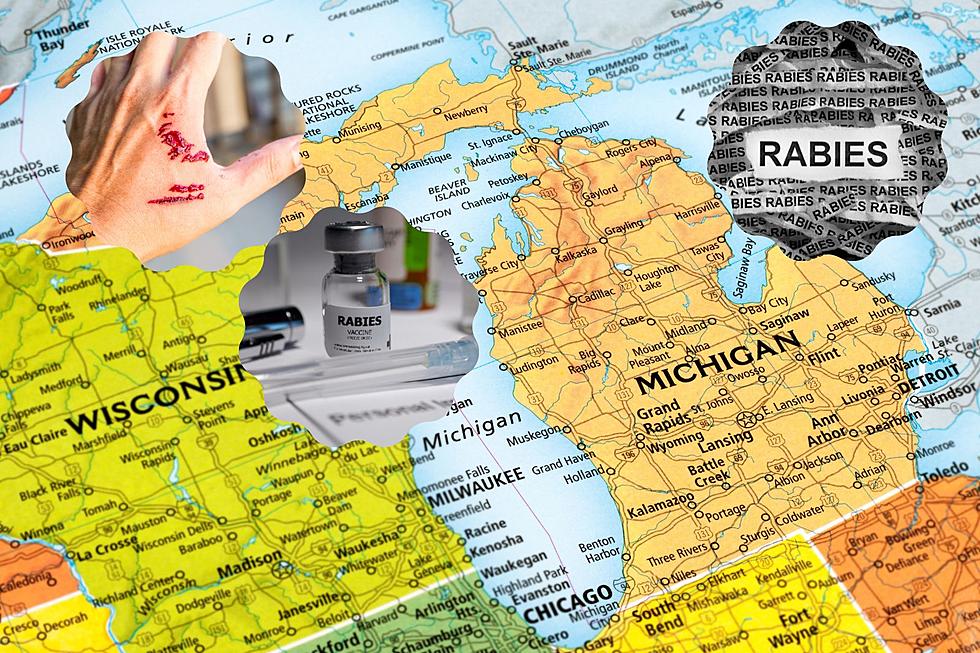
Quickly Learn About Rabies In Michigan! Don’t Fail, You’ll Die
Rabies in Michigan. Rabies thrive in our wildlife. What should you do if you are bitten by a squirrel, raccoon, bat, rat or any other form of nature in Michigan? Head to the emergency room immediately.
RELATED: Look Out Rabid Bats Are on the Move in Michigan
I learned this lesson recently after a flying squirrel and I had an encounter in our home. I can't make this story up. As crazy and entertaining as it was when it happened, I was bit by the flying squirrel and had to go to the emergency room to get a rabies vaccine. I called one of the local redi care locations and was told that they cannot administer that vaccine. They also stated I should head to the ER immediately because of the threat of rabies.
RELATED: When Michigan's Flying Squirrels Attack
Once I arrived at the ER they also confirmed that I did the right thing. Ignoring a bite like that could be fatal if the squirrel was indeed rabid. Unfortunately during the confrontation with the squirrel I wasn't able to quarantine the animal. Since I did not do that the only option for me was to get a rabies vaccine.
What is rabies?
Rabies doesn't sound like much fun, the CDC defines rabies:
Rabies is a preventable viral disease most often transmitted through the bite of a rabid animal. The rabies virus infects the central nervous system of mammals, ultimately causing disease in the brain and death. The vast majority of rabies cases reported to the Centers for Disease Control and Prevention (CDC) each year occur in wild animals like bats, raccoons, skunks, and foxes, although any mammal can get rabies.
What are the symptoms of rabies in humans?
Here's what happens after you have been exposed to rabies.
After a rabies exposure, the rabies virus has to travel to the brain before it can cause symptoms. This time between exposure and appearance of symptoms is the incubation period. It may last for weeks to months. The incubation period may vary based on the location of the exposure site (how far away it is from the brain), the type of rabies virus, and any existing immunity. The first symptoms of rabies may be similar to the flu, including weakness or discomfort, fever, or headache. There also may be discomfort, prickling, or an itching sensation at the site of the bite. These symptoms may last for days.
The symptoms ramp up and will cause serious issues for your body and odds are it will be fatal.
Symptoms then progress to cerebral dysfunction, anxiety, confusion, and agitation. As the disease progresses, the person may experience delirium, abnormal behavior, hallucinations, hydrophobia (fear of water), and insomnia. The acute period of disease typically ends after 2 to 10 days. Once clinical signs of rabies appear, the disease is nearly always fatal, and treatment is typically supportive. Less than 20 cases of human survival from clinical rabies have been documented.
I'm grateful that I was able to get something to protect me against rabies if I was exposed. I did have the tingling at the bite sight, that disappeared quickly. Dying from rabies doesn't sound pleasant, protect yourself and be vigilant around nature.

